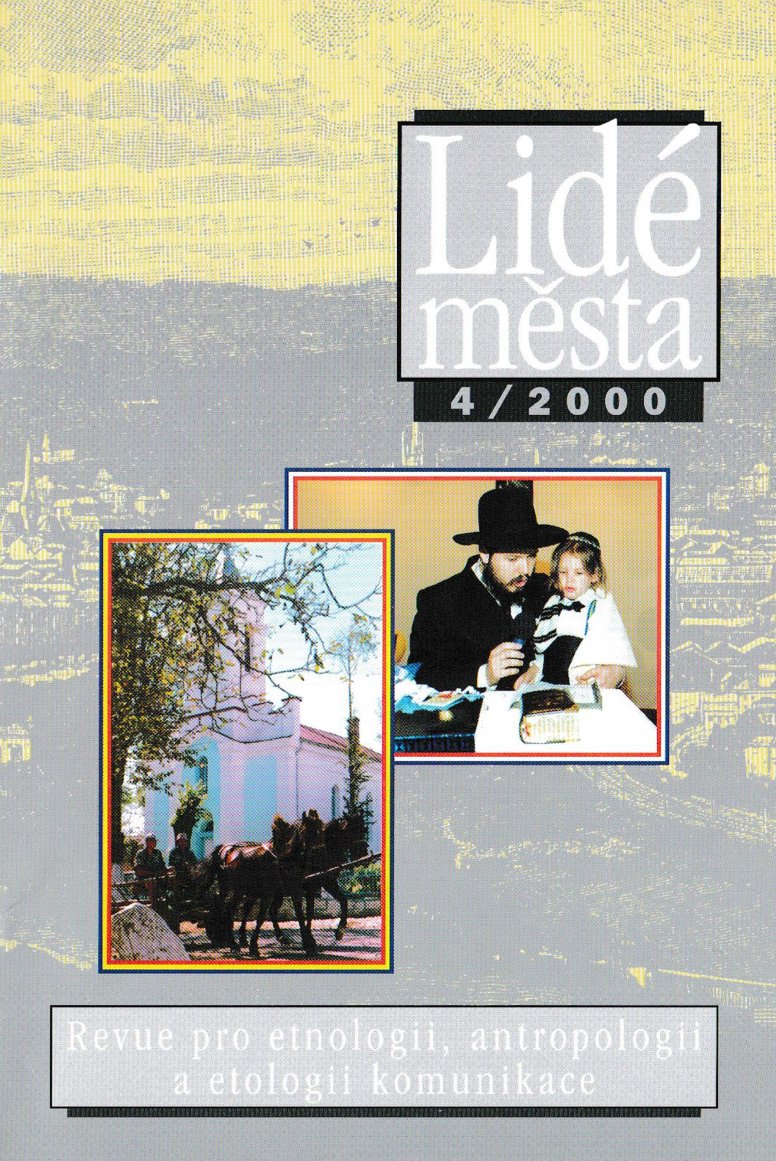,,Za rasu a národ...''
Český neofašismus devadesátých let - tradiční východiska a soudobé proměny
DOI:
https://doi.org/10.14712/12128112.4063Abstrakt
The study is concerned with the causes of the establishment and growth of the neo-Fascist and neo-Nazi branches of the anti-liberal extreme right on the Czech political scene in the 1990s. It documents its traditionalist and anti-democratic system of values which may, if there are favourable conditions, negatively affect the Czech political ethic in an undesirable direction. In the beginning the author deals with the question of discontinuity of Czech Fascism. He describes stages of Czech Fascism between 1922 and 1945. The farce of direct historical continuity is weakened by the fact that compared to its foreign counterparts Czech Fascism remained a politically marginal and numerously weak political current in Czech society. In the Czech politics it never acquired a sizable political weight, never surmounted fragmentation of its organisational framework and ideology, never created a mass national movement, never developed terrorist forms of political work and failed to succeed both in elections and parliamentary work. It was unable to come up with a charismatic leader who would be able to challenge the generally accepted cult of T. G. Masaryk, which had firm links to democratic values. Czech Fascism was at its apex during the conservative authoritarian „second republic" (from 1938 to 1939), when it became part of the ruling elite, thus acquiring a certain portion of power. After the efforts of Czech Fascists to have German Nazis recognise the Czech-German Fascist partnership and to seize the administration in the war-time Protectorate of Bohemia and Moravia failed, the peculiar construction of Czech Fascism started to crumble. A part of Czech Fascists identified themselves with the Nazi Germanity and new pan-European ideas. The year 1945 witnessed total discrediting of Czech Fascism and its expulsion from the Czech political scene. The study also presents a basic typological analysis of contemporary extremely right-wing, neo-Fascist and neo-Nazi groupings. It points to indulgent attitudes to their activities, which in Czechoslovakia and subsequently in the Czech Republic survived until the second half of the 1990s, affecting the legislation and attitudes of local authorities. The study also deals with specific causes of the establishment of the ultra-right in the post-communist Czech society. Along with a loss of certainties, brought about by the ascent of individualised liberalism, and the impact of a large array of problems arising from previous results of economic and political transformation, the author highlights the counter-productive semi-official cosmopolitan ideological attacks on the Czechoslovak and Czech national ideas and national identity which are grist to the mill of integral nationalism and biological racism. The care of the study is devoted to an analysis of the value orientation of Czech neo-Fascism and neo-Nazism. The author used an unusual source - political songs of a number of prominent skinhead bands. At present, both the former and current members of skinhead groupings make up a sizable part of the rank and file of all ultra-right organisations. Furthermore, the impact of skinhead songs crosses the bounds of organised movements. The skinhead music performances are the most perfect propaganda of neo-Fascist and neo-Nazi ideology among the young generation. The combat song plays traditionally an extraordinary mobilisation role in the Fascist utilitarian collectivism. Although it is bound with a different music form than the marches of the Fascist era of the 1920s-1940s - at present it is the so-called hard white rock - its texts and content have remained basically the same. A simple text is made dynamic with repeating choruses - tough slogans calling for a violent act against a totally humiliated enemy, mostly for a murder. The mass music productions constantly apply the same psychological scenario activating mass hatred and joint will for a violent attack. The current Czech political elites are castigated for their alleged contempt for the nation and insufficient protection of Czech national interests in Europe. The fear of threat to the nation goes hand in hand with criticism of the system of representative democracy, its mechanisms and political practice. Everything culminates in the central motive of a „new age, new tomorrow, new world," in which a new order is installed, but not without a bloodshed. The new order means a state of strong fist and the only alternative in which an elite will govern for the people. This will include order, quiet, racial certainty and preponderance of Czechs, while the principle of „blood and honour, a single leader and leadership" will gain the upper hand.
Stahování
Publikováno
Jak citovat
Číslo
Sekce
Licence

Tato práce je licencována pod Mezinárodní licencí Creative Commons Attribution-NonCommercial-NoDerivatives 4.0.


